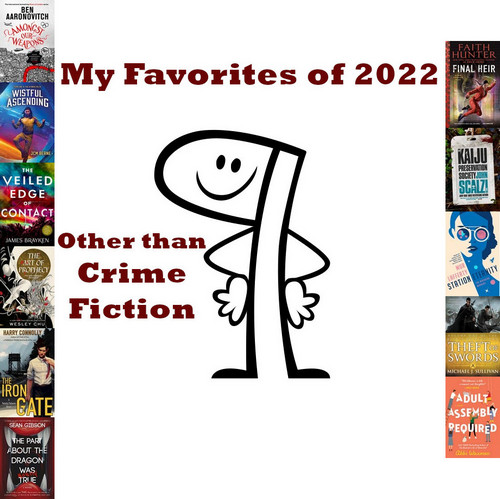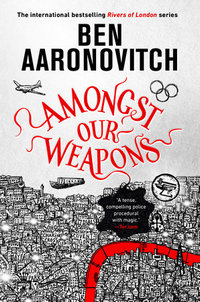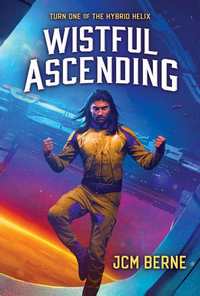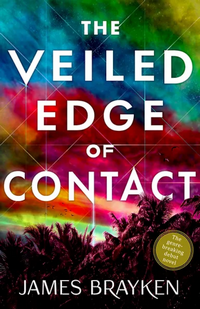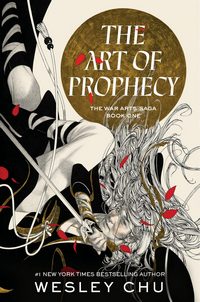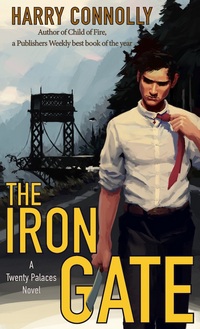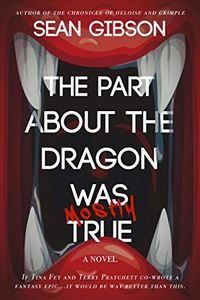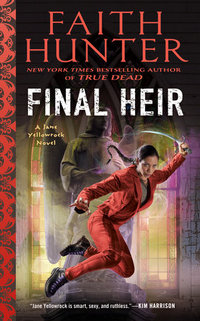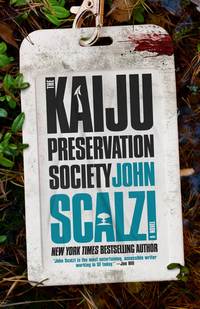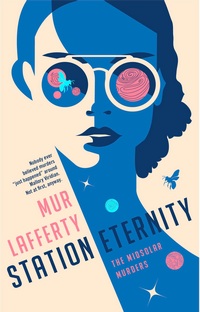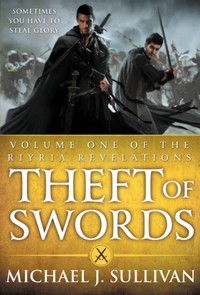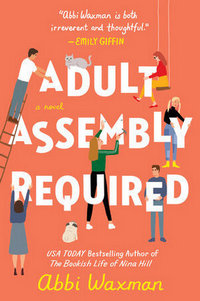by Sean Gibson
DETAILS:
Publisher: The Parliament House
Publication Date: December 10, 2020
Format: Kindle Edition
Length: 358 pg.
Read Date: March 10-12, 2022

I am, if not the most well-known bard in Erithea (yet), arguably the most talented, and unarguably the cleverest. I also wouldn’t quibble if you suggested that I’m the most beautiful, but that’s just because I’m very agreeable (and beautiful)…
Decades ago, I was sworn to secrecy regarding the true story of the great and terrible “Dragonia,” but recent developments have released me from that promise, and so I can finally tell the tale.
A Quick Bit About the Re-issue
You should probably just read what Sean Gibson said over on his website, but I’ll share a snippet:
Bibliophiles the world over know there’s nothing quite like the feel of a hardcover book in your hands, especially when it’s nattily attired in a gorgeously illustrated dust jacket. It’s so much more than a book—it’s an experience. The story pulsating between the covers, a mystical alchemy of ink and imagination exponentially greater than the sum of its parts, guides you on a journey to an infinity of impossible destinations. When you’re reluctantly ready to return to reality, the stolid feel of those very same covers, just one design element of a marvel of engineering that can’t possibly be improved upon, slowly draws you back—changed, bettered, by the experience, somehow made more whole.
With that spirit in mind (or, perhaps, despite that spirit), Parliament House Press has re-issued this novel in hardcover and brought along Mateusz Wisniewski to provide this dazzling new cover. I liked the original cover, but this one is the kind you want on a hardcover.
I’d love to tell you exactly how snazzy this cover looks in person, but for two days now the tracking information says, “The shipping label has been created. Your package will be picked up by the carrier soon. Check back for updates on your delivery, or sign up for notifications.” Woe is me. You should head over to your local bookstore, Bookshop.org, or wherever you get your books and get your hands on this edition* today!
* Or, like me, an annoying and nowhere-near-as-attractive status update.
Enough about that, let’s talk about what’s behind the cover—as great as the cover is, this is the best part:
What’s The Part About the Dragon Was (Mostly) True About?
This is that true story about Dragonia, told alongside the “official” account so the reader can see how the details were adjusted and tweaked to create the story everyone knows.
The town (or village, depending on who you ask) of Skendrick is being terrorized by a dragon—crops are being ruined, trade is disrupted, and the town is about to fall apart. Desperate, they put out a call for adventurers to come and kill the dragon. But they get no takers—so they go to Plan B. The villagers (or townspeople) pool their meager resources to hire a bard. This bard is to compose a song to make the attempt to kill the dragon sound appealing enough—and its treasure (which may or may not actually exist) enticing enough—to get a band of adventurers to come.
This is where Heloise comes in. She takes the gig and soon gets a new and yet unaccomplished band of adventurers to take up the call to action. I don’t want to get into describing the group, you want to meet them in the book.
They encounter difficulties from without and within; nasty, malodorous geography; orcs and other creatures; and, well, the dragon.
Heloise the Bard
“You’re not half as funny as you think you are, as I suspect you have a very high opinion of yourself.”
“My opinion of myself is in direct proportion to my amazingness,” I said sweetly.
The half-elf, Heloise the Bard is our narrator—as you can tell from the quotations above, she has a fairly high opinion of herself and her abilities. She’s also rather impressed with her hair and certain other physical attributes. Probably her greatest skill is self-promotion.
She decides to accompany the adventurers, to chronicle their journey and the outcome of their clash with the dragon. Her wit and quick thinking prove valuable to their effort and her particular set of skills make all the difference.
She is a hoot. It’d be easy for Heloise to be an annoying, over-the-top character, but somehow Gibson keeps her as an entertaining, over-the-top character. I’ve been trying to come up with a character to compare her to, and I’m failing. Maybe she’s the Fantasy version of Evanovich’s Lula, except Heloise has the skills that Lula thinks she has. Maybe she’s the equivalent of High Fidelity‘s Barry. Somewhere in the Venn Diagram featuring Fantasy, Lula, and Barry, I guess.
She appears in a couple of other books by Gibson, and I’m eager to spend some more time with her.
The Humor
The section could easily be merged with the previous one because the humor displayed in the book is primarily Heloise’s. The jokes are pretty much non-stop—even in the middle of fight scenes, or when death is nigh. The danger is still present, and the combat (and so on) is as deadly as it would be in another book—it’s just surrounded by laughs.
It didn’t take me long before I’d highlighted too many lines to quote—not that it stopped me from going on. My notes on this one are ridiculous. I kept chuckling throughout the reading. I probably would’ve finished the book in 2/3 the time, if reacting to the jokes didn’t make me stop reading for a moment.
If you’ve read The Tales of Pell, you’ve got a good idea for the pace of the jokes—and tone of the book, too.
There’s slapstick, there’s scatological humor, a great Meatloaf (the singer) line, some fantastic bursts of alliteration for the sake of a laugh, some general silliness, clever dialogue, and…honestly, I’m having a hard time thinking of a kind of humor that’s not in there. There’s a running gag (that I’ve alluded to) throughout about whether Skendrick is a town or a village—I can’t tell you how often it’s brought up. And the joke works every time—I should’ve gotten sick of it, and I never did. I don’t know how Gibson pulled that off, but that alone is the mark of a fantastic humor writer.
In addition to The Tales of Pell, if you’ve enjoyed Christopher Healy, Dave Barry, K.R.R. Lockhaven, Peter David, Scott Meyer, Joe Zieja, Jim C. Hines’ Jig the Goblin series, or John Scalzi—you’re going to dig the humor here. And if you dig the humor, you’re going to really enjoy the book. It’s that simple.
So, what did I think about The Part About the Dragon Was (Mostly) True?
You know by this point that one of my main goals in telling this story is to show that the adventuring life isn’t all it’s thought to be. It’s mostly boring, frustrating, dangerous (though not excitingly dangerous), smelly (dear gods, so smelly), and not particularly lucrative. Occasionally, however, it’s exactly how the songs make it sound, and in those moments, it’s easy to see why people—even smart, capable people like Nadi—would devote their lives to doing something so irrational. Let the record show that entering a dragon’s lair for the first time is one of those moments, and it’s fair to say that each member of our intrepid band experienced more than a frisson of excitement as we crept across that threshold.
I think it’s pretty clear that I had a blast with this book, but I should probably make that explicit. I had a blast reading this book.
I think I should not that this is not a book to read if you’re in a “find out what happened and get to the end of the story” frame of mind. This is a “enjoy the trip, not the destination”/”stop and smell the roses” kind of book. The destination/what happens is fully satisfying, but the getting-there is so much better.
In addition to the jokes and the dragon, there is a running commentary on what “the adventuring life” is like outside of the glamorous or exciting bits. A lot of fantasy novels will show bits of it, but not enough of them do—and most don’t do it this way. For example, The Part About the Dragon Was (Mostly) True contains more description of various odors than every 99% of the fantasy novels I’ve read by a significant factor. If this were a scratch and sniff book…well, I can’t imagine anyone would stock it—you just don’t want that in your warehouse/store. Sure, it’s silly talking about realism in a book featuring orcs, halflings, elves, etc.—but this factor does ground the book and give it a seriousness (for lack of a better term) that makes this more than a collection of jokes.
This is the funniest book I’ve read in 2022, and I can’t imagine it’ll face much competition. It’s got it all, go get your hands on it.

This post contains an affiliate link. If you purchase from it, I will get a small commission at no additional cost to you. As always, opinions are my own.

 This is a weekly bloghop hosted by Freda’s Voice.
This is a weekly bloghop hosted by Freda’s Voice. Grab a book, any book.
Grab a book, any book. Turn to Page 56 or 56% on your ereader. If you have to improvise, that is okay.
Turn to Page 56 or 56% on your ereader. If you have to improvise, that is okay. Find a snippet, short and sweet.
Find a snippet, short and sweet. Post it.
Post it.
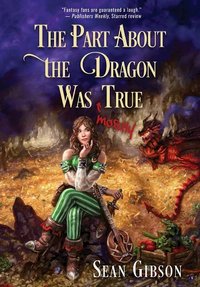
![]()



